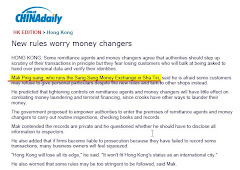風險胃納上升,讓美元處於劣勢,外匯焦點亦終於遠離希臘事件,但在進一步解讀這些之前,我們再談一下希臘。值得大家注意的是希臘債券的拍賣結果不俗,售出的債券比預期為多,可惜借貸成本高於上一次一月的拍賣,意味著債券在續期的時候需要承受更高的集資成本。
歐盟/國際貨幣基金會 (IMF) 公佈貸款計劃之後,拍賣隨即舉行,所以得到正面的反應並不意外,但相同的反應難見於希臘及歐元,後者亦很難以受到拍賣結果的提振。利好歐元的主要消息是市場仍然大量賣空歐元,然而,歐元兌美元的匯價很可能在 1.3653 左右的技術阻力位爭持,難有突破。
更值得留意的是亞洲央行繼續抑制上升中的通脹壓力,以新加坡元為首的亞洲貨幣都因為新加坡金融管理局 (MAS) 決定讓其貨幣升值而獲帶動上升。新加坡的貨幣政策由不升值,恢復至「溫和而漸進的升值」,明顯意味當局允許匯價於未來數星期或數月進一步上漲。
政策改變的原因清晰,並可見於新加坡第一季的強勁國民生產總值,有關數字按年上升達 13.1%。更強勁的經濟增長令通脹憂慮加劇,MAS 的對策將會是讓新加坡元匯價有更大幅度的上升。市場憧憬其他亞洲央行會同樣對貨幣升值更為寬鬆(我們認為這想法頗為正確),所以亞洲貨幣對 MAS 的決定也表現正面。
另一方面,新加坡先發制人地作出決定,可能是注意到中國即將讓人民幣升值。中美之間的緊張局面最近有所緩和,讓中國更有可能加快升值步伐,人民幣有望在第二季季尾前升值。不論原因為何,亞洲通脹壓力上升將減少區內的外匯干預,亞洲貨幣也可能在未來幾個月走高。
米圖 (Mitul Kotecha)
東方匯理銀行全球外匯策略主管
Boost to Asian currencies
The positive tone to risk appetite is keeping the USD on the back foot and for once FX attention has turned away from events in Greece. Before elaborating further and staying with Greece, it’s worth highlighting that the outcome of Greece’s note auction was reasonably solid, with more debt than anticipated being sold. However, the cost of borrowing for Greece rose compared to the previous auction in January, which means that the Greece will still suffer higher funding costs to roll over debt.
The positive reception to the debt offering was not particularly surprising given that it followed so closely after the EU/IMF loan package announcement but it is difficult to see sentiment for Greece and the EUR for that matter, getting much of a lift. The main positive for the EUR is the fact that market positioning remains very short but EUR/USD is likely to struggle to make much headway above technical resistance around 1.3653.
More interestingly Asian central banks are continuing on the track towards fighting rising inflation pressure and Asian currencies, in particular the SGD, were boosted by Singapore Monetary Authority (MAS) decision to revalue its currency. Singapore has moved back to a policy of a “modest and gradual appreciation” of the SGD from a policy of zero appreciation, which obviously implies openness to further FX appreciation in the weeks and months ahead.
The rationale for the decision was clear and as revealed in the strong first quarter Singapore GDP data which revealed a 13.1% annual rise. Stronger growth is fuelling growing inflationary concern and to combat this Singapore’s MAS will allow greater SGD appreciation. The reaction in other Asian currencies was also positive, with markets (quite rightly in our view) that other Asian central banks will be more tolerant of currency strength in their respective currencies.
Moreover, Singapore’s move was pre-emptive, perhaps with one eye on an imminent revaluation in China. The recent easing in tensions between the US and China has if anything increased the likelihood that China revalues the CNY sooner rather than later, and most likely before the end of Q2. Whatever the rationale, strengthening inflation pressure across the region, will mean a less FX interventionist stance in Asia, and likely stronger currencies over coming months.
Mitul Kotecha
Head of Global Foreign Exchange Strategy
Crédit Agricole Corporate and Investment Bank
來源: http://www.mpfinance.com/htm/Finance/20100415/Columnist/en09_00001791.htm











